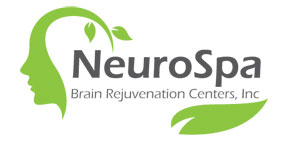What Is ADHD & What Attention Deficit Treatments Are Available?
Poor focus, difficulty with concentration, and difficulty staying on task are all common symptoms of attention deficit disorder (ADD), now more specifically referred to as attention deficit hyperactivity disorder (ADHD). ADHD is among the most common cognitive disorders in children of all ages but can also be diagnosed in adults. Children and young adults can often have trouble completing tasks in school, focusing on lectures, and preparing for exams, as well as completing jobs and tasks outside the educational environment. Quite commonly, grades, careers, relationships, and self-esteem can be jeopardized by these and similar cognitive disorders. Disorders of attention are often due to abnormal function of the frontal lobes, specifically the orbito-frontal and prefrontal cortices. This can lead to compromising the executive function (e.g., second-to-second staging, planning, and decision-making).
Currently, several attention deficit treatments are available or in the works for alleviating issues raised by ADHD. Intense research has been conducted that shows that when the brain is stimulated by medication, concentration is given a boost and ADD/ADHD symptoms significantly improve or diminish. However, drugs can often lead to far greater and more unpleasant side effects, including developing tolerance, seizures, high blood pressure, as well as other potential issues. However, there are alternatives for attention deficit treatment. Studies have shown that using very specific electrical stimulation applied to specific regions of brain, including the pre-frontal cortex, help to reduce ADD/ADHD symptoms without the side-effects associated with long-term use of drugs. Specific neurofeedback strategies have been tested and shown to be a great boon when managing ADD/ADHD. When non-drug modalities and alternatives treatments are combined, patients have commonly experienced the greatest benefits.
If you or your child experience ADD/ADHD issues that interfere with the quality of your or their life—or the ability to complete tasks—consult with us for an assessment of your symptoms. We can point you toward the best possible attention deficit treatment.



